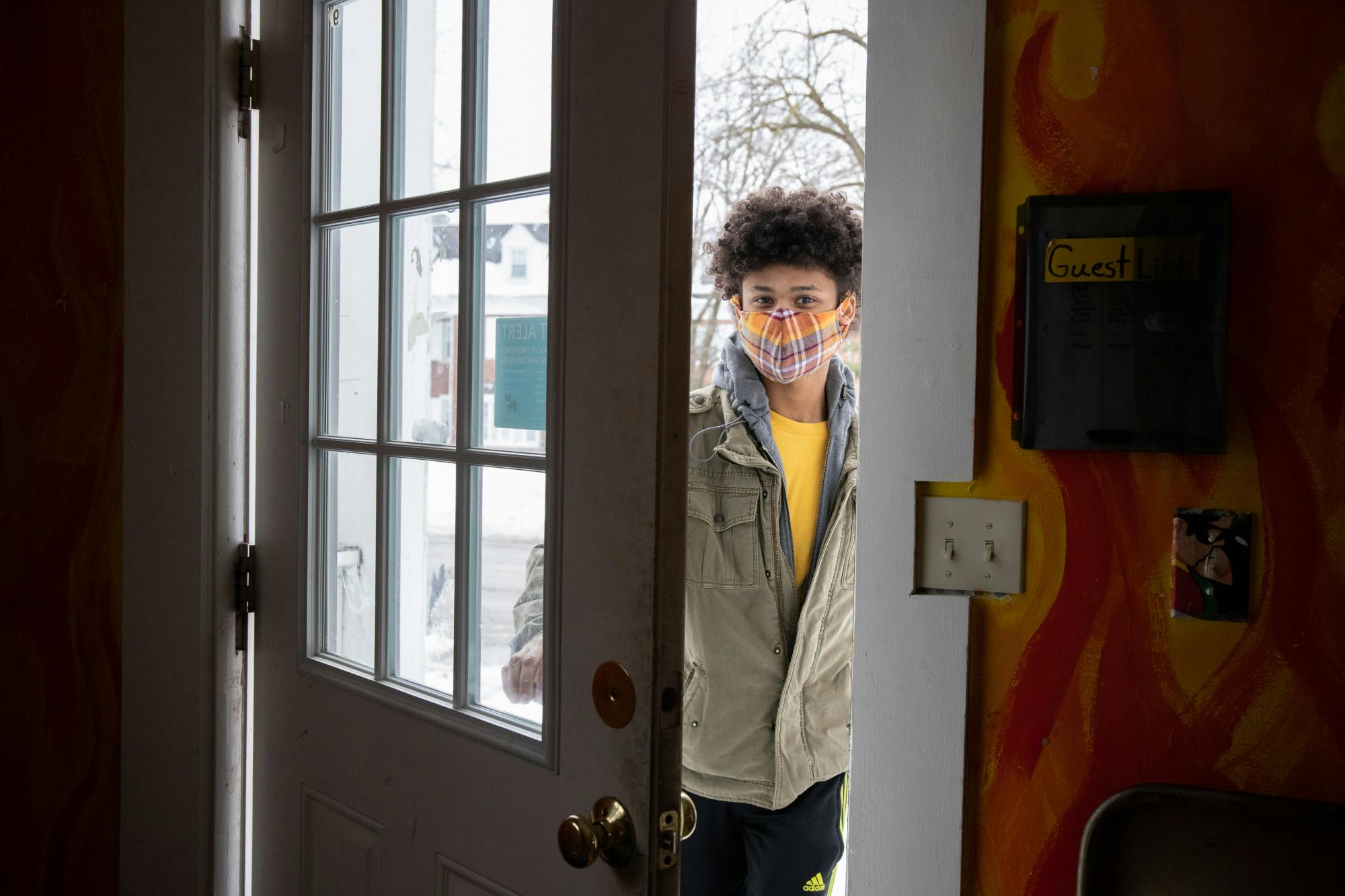Cooperative (co-op) housing, a frequently overlooked housing option at Michigan State, offers a sense of community, responsibility and self-governance for its residents.
In a normal year, life in a co-op household consists of group dinners, vibrant common spaces and mixer events with other co-op houses.
With 14 houses on campus, each housing five to 29 members, everyone can find a community that best suits them. However, these close quarters and tight knit communities seem like the perfect place for COVID-19 to spread.
Since co-op housing is based on self-governance, each house is responsible for deciding whether they want to follow the rules set by the co-op coronavirus task force, or create their own set of COVID guidelines. Unlike in other shared group spaces such as dorms, fraternities or sororities, there are no mandatory rules residents must follow.
“We outline what the default option is for all the 17 houses,” linguistics senior Zack Sneed said. “This goes out to the houses and then they can either take the default option or make their own rules for their individual houses — this is house autonomy.”
Sneed is one of a handful of co-op residents that is part of the co-op coronavirus task force.
Some common rules individual houses have set include sanitization of common spaces, mandatory quarantine after exposure and mandatory lockdown should someone get infected.
Within Phoenix house, Sneed’s co-op, some of the house officers have banded together to create their own in-house task force.
“We reviewed our own coronavirus policies for guests, for moving in new members, for quarantine procedures, stuff like that,” he said.
Phoenix, which is the biggest co-op on campus, has only had two cases so far, back in November.
“We all began wearing masks in common spaces, people stayed in their rooms unless to get food or use the restroom, no one came or left, groceries were done by drop-off," Sneed said. “People were given the option to leave. So, that’s what most of the house did, they went home to their parent’s or significant others’ house after getting tested themselves.”
Given the size of the house, Sneed said he considers only two people testing positive a success. When everyone in the house is healthy, residents are still able to share meals together.
“We have house meals, for us it’s two or three times a week for dinner,” Sneed said. “We did suspend house meals for a couple of months, right around the time of those two cases ... I think we were actually cooking a house meal that night which then people had to pick up and take to their rooms.”
Although many college students may be tempted to allow a free-for-all when given the choice to self-govern, co-op members recognize the accountability they share to keep each other safe.
“I think a lot of the other houses understandably took a more paternalistic approach that was much more ‘here are the rules, and here are the consequences’,” Sneed said. “I think Phoenix culture doesn’t really respond to those.”
Sneed said it was much more beneficial for the house members to talk about what their health means to other people and what their responsibilities are to the group.
Public policy senior and Orion house resident Sky Stillwell said her house values similar principles.
“We’re very strict on our guest policy,” Stillwell said. “Few people are allowed to leave the house to see people, but we really trust that our housemates are going to be smart about their choices.”
This sense of mutual respect has worked well for members of Orion house — none of their 22 members have tested positive for COVID-19.
“We are one of the few co-ops who haven’t had a positive case whatsoever, we haven’t had to go on full lockdown because of a possible case either,” Stillwell said.
Support student media!
Please consider donating to The State News and help fund the future of journalism.
With many houses having policies regarding one guest, or no guests at all, it is easy for co-op housing members to feel as though they are missing out on the co-op experience they signed up for.
Astrophysics and data science senior Jonathan Sheehan, who is also a member of Orion house and the COVID response team, recognizes this.
“It’s definitely not been easy at times, because people want that socialization,” Sheehan said. "We’ve had to limit our interactions both with people inside the house, but also we’ve been limiting the number of people that we try to see outside of the house.”
One of the cooperative principles that Sheehan said his house members live by is cooperation among cooperatives, and part of that is the socialization aspect.
However, Sheehan considers himself lucky to be able to see a variety of different people within his house every week.
“I do think that we are at an advantage during this compared to people in other living situations,” he said. “Because even if you’re in a house with a couple of friends, it’s the same few people that you need to see every day ... whereas, I can see somebody who I haven’t seen for a week in my house.”
Although Sheehan and his housemates are unable to interact with other houses in the same way they would pre-COVID, they understand that they owe it to each other to stay put.
“It’s a mutual understanding that it’s a sacrifice we all have to make to keep each other safe,” Sheehan said.
This article is part of our Spring Housing Guide issue. Read the full issue here.
Discussion
Share and discuss “Responsibility, not rules: COVID and cooperative housing ” on social media.







